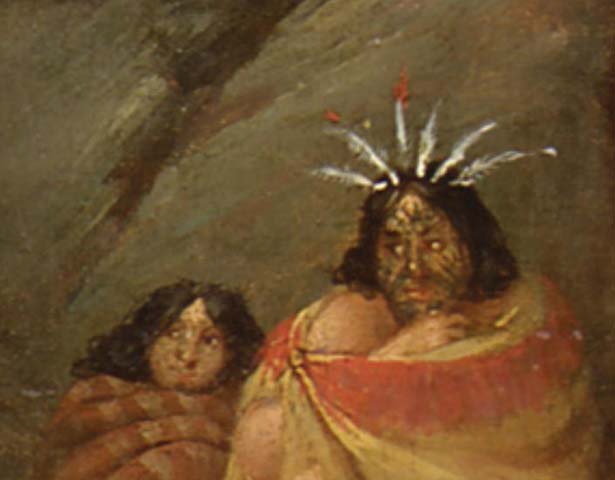
The Ngāpuhi rangatira Hongi Hika became a pivotal figure in New Zealand history. He was a skilled and driven leader in war and trade, and his actions had far-reaching consequences.
Ngāpuhi and rival iwi Ngāti Whātua fought in 1807 or 1808. Ngāpuhi were decisively beaten, and their war leader Pokaia was killed, as were two of Hongi Hika’s brothers. Hongi succeeded Pokaia, and thereafter was determined to avenge the Ngāpuhi losses.
Hongi built mutually beneficial relationships with European visitors, and encouraged the establishment of mission stations under his protection. He oversaw a tribal operation growing potatoes. These were traded with Europeans for muskets and powder.
On a voyage to England in 1820 he obtained more muskets. With this arms advantage, he began a series of successful military campaigns against other iwi in the region. His many captives were put to work on crops, growing more potatoes to exchange for more weapons, creating a spiral of war, trade and more war.
Hongi’s campaigns set off a chain reaction of further wars and migrations, as displaced groups sought new lands. This brought about a major redistribution of the Māori population, particularly in the North Island.
At home Hongi is said to have been a gentle man, who worked alongside his people on day-to-day tasks, and treated his family well.
His ambition to redress the balance between his people and Ngāti Whātua was never completely fulfilled. In 1825 his son was killed in a battle against Ngāti Whātua, and he grieved deeply.
Illness and misfortune began to dog him, and he died from a musket wound in 1828, at Whangaroa. The last resting place of his bones was kept secret.
Adapted by Johanna Knox from the DNZB biography by Angela Ballara
How to cite this page
'Hongi Hika', URL: https://nzhistory.govt.nz/people/hongi-hika, (Ministry for Culture and Heritage), updated 8-Nov-2017

Community contributions